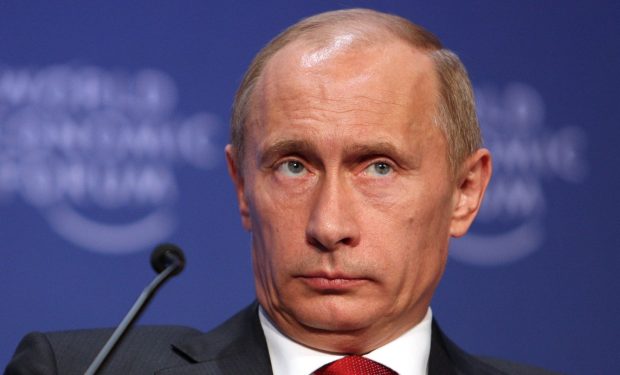In an extensive post criticizing the posture of the United States as it participates in what’s being characterized by the Trump administration as peace negotiations to end the war between Russia and Ukraine, the influential Yale historian Timothy Snyder cautions against taking claims by the Trump administration at face value. (Snyder is an expert on Eastern Europe, Russia and the Holocaust.)
Snyder begins by questioning the validity of the “peace negotiations” label itself, contending that the term — though it has been adopted and repeated by mainstream media sources — does not accurately describe the talks between U.S. and Russian officials scheduled to take place in Saudi Arabia this week.
Snyder points out that the U.S. and Russia are not at war and therefore bilateral talks between the two nations can’t accurately be described as a “negotiation” to bring about peace in the war-torn region, even as Ukraine President Volodymyr Zelensky has admitted the centrality of U.S. support in its war effort — saying that without backing from the Trump administration Ukraine’s continued resistance against Russia was untenable.
[NOTE: Trump has repeatedly said the war “should never have started” while not saying specifically that “Putin should not have invaded Ukraine.” More recently, Trump appeared to cast some blame on Ukraine for Russia’s aggression, telling Ukrainians it was a “bad war to get into.”]
BREAKING: Putin's foreign minister will fly to Saudi Arabia for talks with Trump officials on restoring ties, Ukraine and preparing a meeting between the presidents, Kremlin says. https://t.co/OieMS2U7aV
— The Associated Press (@AP) February 17, 2025
Snyder also takes the Trump administration to task for its posture in the self-styled negotiations, slamming — as others have done — the concessions that the U.S. appears to have made in advance, on Ukraine’s underrepresented behalf.
These include the “reality” that Ukraine won’t recover all of its previous territory and also, notably, signaling that the speed of a resolution is the paramount consideration, encouraging Russians to use stall tactics to exact further leverage in any proposed settlement. (If the glass slippers are set to expire at midnight, you leave the ball no matter how things are going.)
But Snyder’s most alarming accusation about the Trump administration’s treatment of Putin and Russia is Trump’s purposeful “rehabilitation” of both and the removal of pariah status from the invading nation, which has suffered international — largely Western — condemnation since it invaded Ukraine three years ago.
No matter what results — if any — the Saudi Arabia talks bring, this aspect of the narrative switch and role reshaping already has been set in motion, reminding some of Trump’s recasting of January 6 as a peaceful “day of love.”
Snyder writes:
“The United States has chosen to negotiate with the aggressors (the president of the Russian Federation has been indicted for war crimes) rather than support the victims. By reaching out to Vladimir Putin, Donald Trump has ended the Russian leader’s international isolation. By speaking of Putin as someone who supposedly wants peace rather than as the aggressor in the bloodiest war since 1945, or as someone who has been indicted for war crimes, Trump is seeking the cleanse the the moral stain from the person who broke the most fundamental of international laws by invading another country. Even if the talks have no other consequences, Trump’s rehabilitation of Putin is a meaningful one for Russia.”
In January, Snyder retweeted the post below:
Meanwhile in Russia: state TV host Olga Skabeeva and pundit Spiridon Kilinkarov surmised that Donald Trump owes his presidency to Russia and should in return let them have all of Ukraine.https://t.co/4vL1cWZkHi
— Julia Davis (@JuliaDavisNews) January 30, 2025
